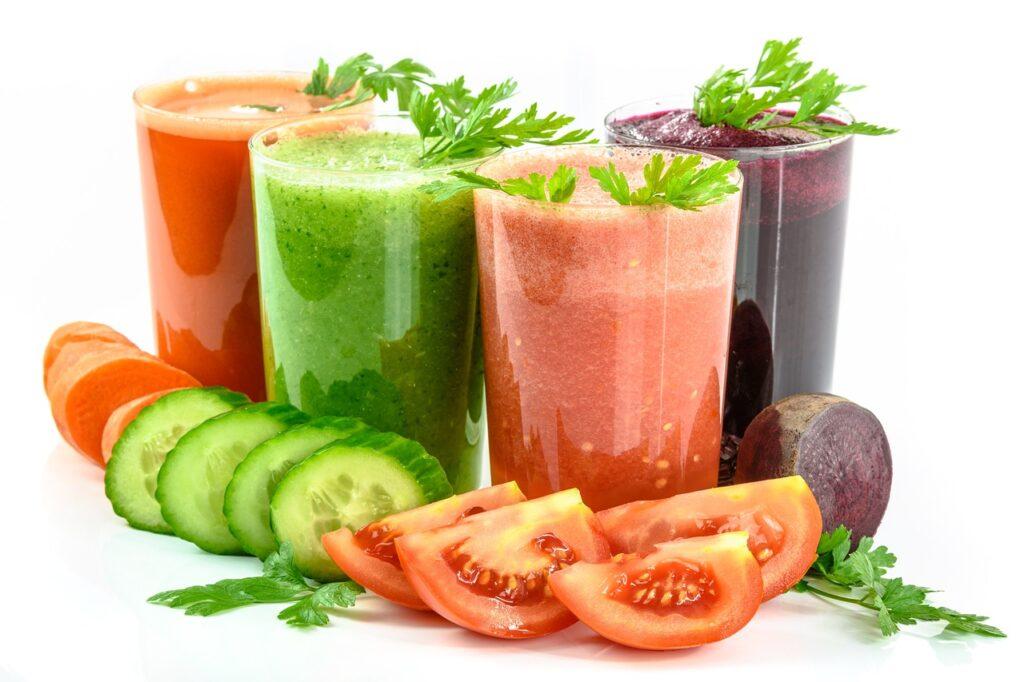
Vegetarianism, known in Sanskrit as ‘shakahara’, was for thousands of years a principle of health and environmental ethics predominant in ancient India. India has mostly been a vegetarian country, with the Food and Agriculture Organizations of the United Nations ranking India as the lowest consumer of meat in the world in the year 2007. Despite numerous foreign invasions and influences of foreign cultures, the Indian society still boasts more than 42% of its population surviving on a vegetarian diet even today. Bharat, or India, has always been a land of spirituality and it is in this holy land, that we may find even a commoner practicing the highest tenets of spiritual science in his day-to-day life. Sanatan Dharma in its most refined state preaches vegetarianism, as a way to live with a minimum of hurt to other beings, for to consume meat, fish, fowl or eggs is to participate indirectly in acts of cruelty and violence against other creatures. The sages of Vedic India have asserted that one cannot eat meat and live a peaceful, harmonious life. Man’s appetite for meat inflicts devastating harm on the earth itself, stripping its precious forests to make way for pastures. How can one who eats meat or consumes the flesh of another practice true compassion? As Benjamin Franklin stated – “Flesh eating is unprovoked murder”.
On the spiritual path, we need to perceive the spiritual spark within all living beings, and that includes the animals as well. We must practice universal brotherhood, which means non-violence to both humans and other animals. It consists of understanding that animals also have souls. They are alive, conscious, and feel pain. Those who eat meat, however, because of their desires to eat animals, are not so easily able to comprehend the spiritual nature of all beings. All living creatures are the same, in the sense that we are all children of the Same father, the Supreme Being. Thus, the killing of animals shows a great lack of spiritual awareness.
Health benefits of being a Vegetarian
‘Cardiovascular disease mortality and cancer incidence in vegetarians: a meta-analysis and systematic review’ published in Annals and Metabolism found that vegetarians have a significantly lower ischemic heart disease mortality (29%) and overall cancer incidence (18%) than nonvegetarians.(ref – https://pubmed.ncbi.nlm.nih.gov/22677895/)
‘A systematic review with meta-analysis of observational studies’ reported a significant protective effect of a vegetarian diet versus the incidence and/or mortality from ischemic heart disease (-25%) and incidence from total cancer (-8%). Vegan diet conferred a significant reduced risk (-15%) of incidence from total cancer. (ref – https://pubmed.ncbi.nlm.nih.gov/26853923/)

The position of ‘American Dietetic Association on Vegetarian diet’ contradicts the popular myth that vegetarian diets are inadequate. It reports that Well-planned vegetarian diets are appropriate for individuals during all stages of the life cycle, including pregnancy, lactation, infancy, childhood, and adolescence, and even for athletes. A vegetarian diet can easily meet the current recommendations for all key nutrients like protein, n-3 fatty acids, iron, zinc, iodine, calcium, and vitamins D and B-12. The study showed that a vegetarian diet is associated with a lower risk of death from ischemic heart disease. Vegetarians also appear to have lower low-density lipoprotein cholesterol levels, lower blood pressure, and lower rates of hypertension and type 2 diabetes than nonvegetarians. Furthermore, vegetarians tend to have a lower body mass index and lower overall cancer rates. (ref – https://pubmed.ncbi.nlm.nih.gov/19562864/)
A Randomized Controlled Trial conducted by Cancer research found that Red meat is associated with increased risk of colorectal cancer and increases the endogenous formation of N-nitroso compounds (NOC). (ref – https://pubmed.ncbi.nlm.nih.gov/16452248/)
Vedic scriptures on Meat eating
Rig Veda:
“One who partakes of human flesh, the flesh of a horse or another animal, and robs others of milk by slaughtering cows, O King, if such a miscreant does not desist by other means, then you should not hesitate to administer severe punishment.”
Manu-Samhita:
“Meat can never be acquired without incurring injury to other living creatures. Injury to sentient beings is detrimental to the attainment of heavenly bliss; let one, therefore, shun the use of meat. Having well considered the disgusting origin of flesh and the cruelty of fettering and slaying corporeal beings, let him entirely refrain from eating flesh.” (Manu-samhita 5.48-49)
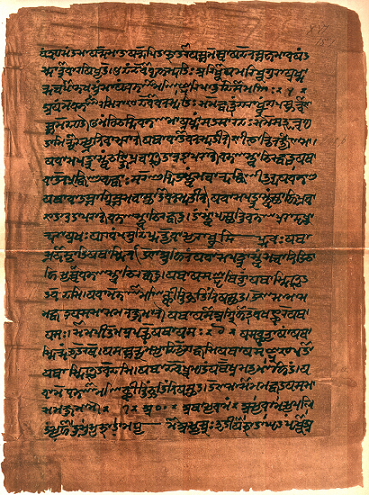
“He who permits the slaughter of an animal, he who butchers it, he who buys or sells meat, he who cooks it, he who serves it up, and he who eats it, must all be considered as the slayers of the animal. There is no greater sinner than that man who, though not worshiping the gods or the ancestors, seeks to grow the dimension of his own flesh by consuming the flesh of other beings.” (Manu-samhita 5.51-52)
“If he has a strong desire (for meat) he may make an animal of purified butter or one of flour (and eat that), but let him never pursue to kill an animal without a (lawful) reason. As many hairs as the slain beast have, so often indeed will he who killed it without a (lawful) reason shall suffer a violent death in his/her future births.” (Manu-samhita 5.37-38)
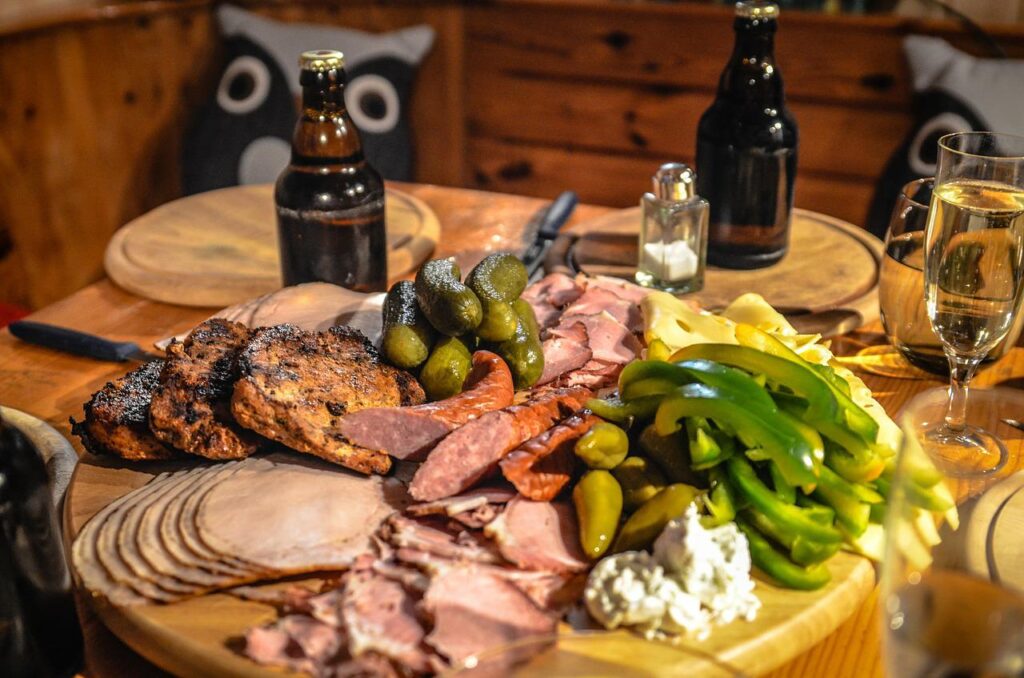
“He who hurts harmless creatures from a wish to give himself pleasure never finds happiness in this life or the next.” (Manu-samhita 5.45)
“By not killing any living being, one becomes fit for salvation.” (Manu-samhita 6.60)
Mahabharata:
“What must be said of those innocent and healthy creatures gifted with the love of life, when they are sought to be killed by sinful wretches living by slaughter? Therefore, O King, know that the discarding of meat is the highest shelter of religion, of the celestial region, and happiness. The abstention of injury [to others] is the highest religion. It is, again, the highest penance. It is also the highest truth from which all duty emanates”. (Mahabharata, Anu. 115-21-23)
“He who wishes to augment his own flesh by devouring the flesh of other creatures lives in misery in whatever species he takes birth”. (Mahabharata, Anu.115.47)
“Yudhisthira said: Alas, those evil men who, not caring for various other types of food, desire only flesh, are truly like the great Rakshasas (meat-eating demons)”. (Mahabharata, Anu.116.1)
Bhagavata Purana:
“Those who are ignorant of real dharma and, though wicked and haughty, account themselves virtuous, kill animals without any feeling of remorse or fear of punishment. Further, in their next lives, such sinful individuals will be eaten by the same creatures they have previously killed in this world.” (Bhagavata Purana 11.5.14)
Why is eating plants encouraged ?
Food made of plants is both spiritually and physically congenial. Spiritually it demonstrates due reverence for the Creator by minimizing violence to his creation, by refraining from the killing of animals for the sake of our taste buds. Physically, it comprises the healthiest human diet, for our digestive systems resemble those of herbivores, not carnivores. So we become sicker with a meat-centered diet and healthier with a plant-centered one.
Plants lack central nervous system, nerves and brains. There would be no evolutionary benefit for plants to feel pain as they cannot move. Hence it is believed that plants are incapable of feeling pain. Hence plucking a leaf, fruit or a vegetable from a plant cannot be equated with, say, cutting off the legs of a chicken.
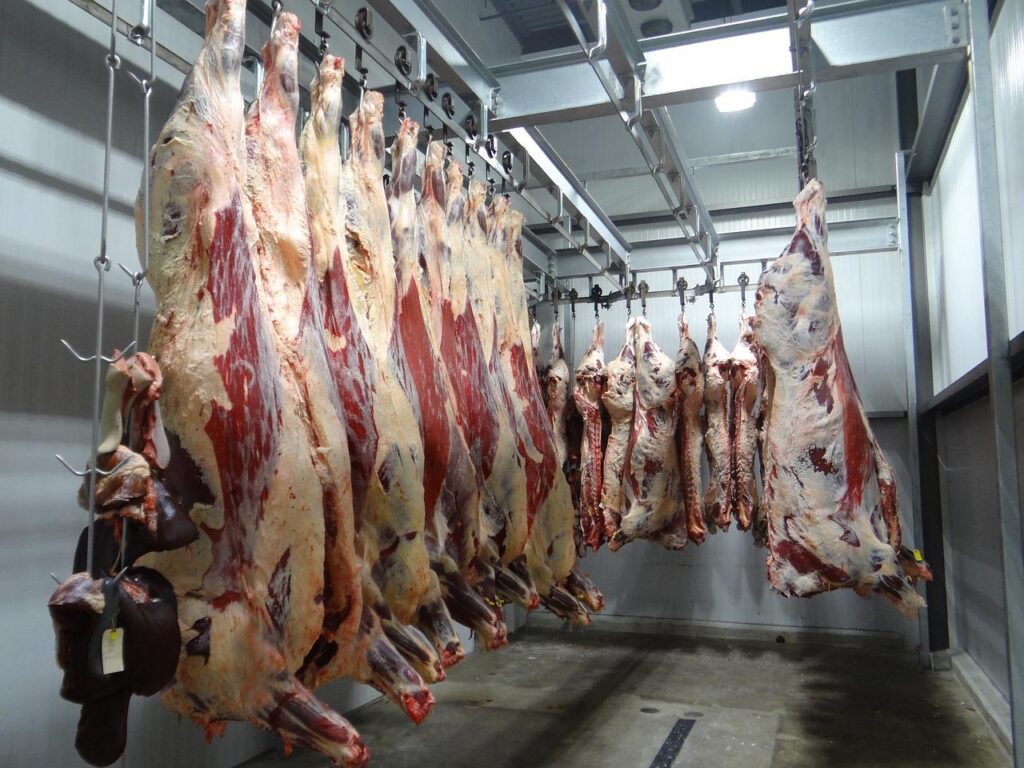
From the viewpoint of Sanatan Dharma, Krishna instructs in Bhagavad Gita :
patram puspam phalam toyam
yo me bhaktya prayacchati
tad aham bhakty-upahrtam
asnami prayatatmanah
(Bhagavad Gita 9.26)
–
If one offers Me with love and devotion a leaf, a flower, fruit and water, I will accept it.
Therefore as Krishna has instructed, we can offer unto Him fruits, leaves, vegetables and water. He does not ask for meat, fish, eggs, etc. The devotees, therefore accept only vegetarian foodstuffs, as only these can be offered unto Krishna. In the very next verse Krishna instructs Arjuna as follows –
yat karosi yad asnasi
yaj juhosi dadasi yat
yat tapasyasi kaunteya
tat kurusva mad-arpanam
(Bhagavad Gita 9.27)
–
O son of Kunti, all that you do, all that you eat, all that you offer and give away, as well as all austerities that you may perform, should be performed as an offering unto Me (Krishna).
Hence, the devotees must only consume that, which has been previously offered to Lord Krishna. We must only partake in the remnants of the Lord. This is also referred to as ‘Prasadam’, or sanctified food. Therefore, as we can only offer vegetarian food to Lord Krishna, the Lord here implies that we should also consume likewise.

Krishna confirms in Bhagavad Gita (3.13) that the devotees are released from all kinds of sin because they eat food that is first offered for sacrifice (unto the Lord). Hence the Karma one incurs in eating vegetarian food, is nullified by the Lord, because the Lord Himself recommends that man consume plants. Hence eating plants is man’s ‘swadharma’.
So on the spiritual path eating food that is first offered to God is the ultimate perfection of a vegetarian diet. The Vedic literature explains that the purpose of human life is reawakening the soul’s original relationship with God, and accepting prasadam is one way to help us reach that goal.
Eating Meat – Concessions in Vedic scriptures
Now, one might ask, then why is the sacrifice of certain animals permitted in some Hindu temples. The answer to this is that Vedic literature does not present spirituality in just one form. The spiritual processes offered in the Vedic literature are not uniform but omniform. The Vedic literature recognizes that different people have different levels of adhikara or the capacity to practice spiritual life. The Sanatana Dharma, being the oldest of religions, encompasses the inclination of people who range from the morally bankrupt to the spiritually exalted. So, that is why for those who are very much addicted to meat-eating and can’t give it up that easily, meat-eating is permitted under certain restricted conditions. So these statements in the Vedic scriptures allowing meat consumption for these people are concessions and not recommendations.
The process is that once in a month, on a dark moon night (Amavasya), such meat-eaters are allowed to consume some lesser animal like a goat. They need to take the animal out of the locality, where there are no people around, or to these temples and then while chanting the mantra “Mam sa khadatiti mamsah”, they have to personally slit the throat of the animal.
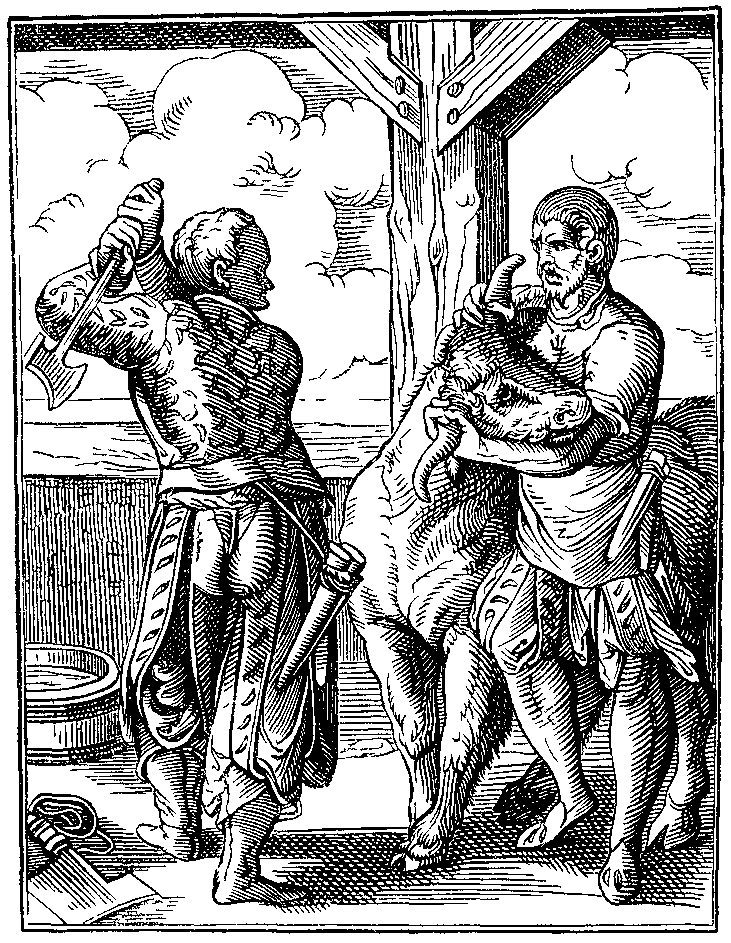
The mantra that is repeated during the sacrifice means “You are giving your life, so in your next birth you will get the opportunity of becoming a human being. And I who am killing you now will become an animal, and you shall then kill me”.
So one day, this person might actually realize the meaning of the mantra that he is reciting while slaughtering the animal, and apprehend the sorry state that he is going to be in his next life. The idea is that this shall hopefully refrain him from further killing of animals. Thus the objective of such concessions is to elevate the consciousness of a person from the mode of ignorance gradually to the mode of goodness.
Similarly, according a particular style of tantric worship, the worshipers are required to have five M’s “ maans (meat), matsya (fish), madira (liquor), maithuna (sex) and mura (parched rice) for their worship. These forms of regulated worship are the only means by which such individuals, plagued by the mode of ignorance (tamo guna), can be enticed to glorify God.
So these concessions of meat-eating are provided to some worshipers who are swayed by the mode of ignorance so that they can eventually elevate themselves to the modes of goodness or even higher, where the basis of worshiping God, would neither be fear nor material gains but instead pure Love.